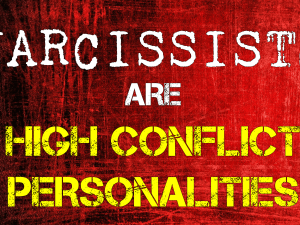Why High-Conflict Divorces with a Narcissist Are So Difficult
Divorcing a narcissist is uniquely challenging, often escalating into high-conflict scenarios that drain emotional, financial, and mental resources. Narcissistic personality traits (NPD)—such as grandiosity, a need for admiration, and a lack of empathy—create a perfect storm of obstacles that make these divorces particularly difficult.

Understanding why these situations are so difficult requires examining the narcissist’s behavior, their impact on the legal process, and the emotional toll on the other spouse. First, narcissists thrive on control and validation, which makes them resistant to compromise. In a divorce, where negotiation and cooperation are often necessary, a narcissist may view any concession as a personal defeat. They may prolong disputes over assets, custody, or minor details to maintain control or punish their spouse.
This intransigence turns straightforward legal proceedings into protracted battles, inflating legal fees and delaying resolution. Second, narcissists often engage in manipulative tactics that heighten conflict. Gaslighting, blame-shifting, and portraying themselves as victims are common strategies. They may present themselves as charming and reasonable to mediators, judges, or attorneys while painting their spouse as unstable or unfit. This can confuse legal proceedings and create doubt about the other spouse’s credibility.
In custody disputes, narcissists may weaponize children, using them as pawns to hurt their ex-partner or bolster their own image as the “better” parent, regardless of the children’s well-being. The emotional toll of divorcing a narcissist compounds these difficulties. Narcissists are skilled at exploiting vulnerabilities, often targeting their spouse’s insecurities to provoke reactions that can be used against them in court. The constant manipulation and hostility can leave the other spouse feeling exhausted, isolated, and self-doubting. Moreover, narcissists rarely disengage post-divorce, continuing to create conflict through co-parenting disputes or violations of court orders, prolonging stress long after the legal process ends.
These factors above, combined with a legal system that sometimes struggles to understand such NPD dynamics, create a uniquely challenging experience. Our firm can help. Check out our experience dealing with HCPs and let attorney Michael Roe know if he can be of help, through an initial phone or Zoom consultation.
 Illinois Divorce Lawyer Blog
Illinois Divorce Lawyer Blog

